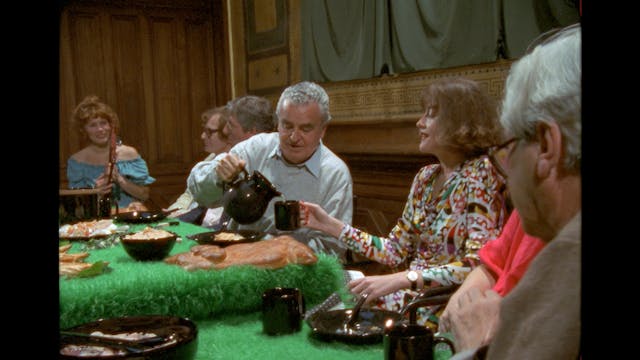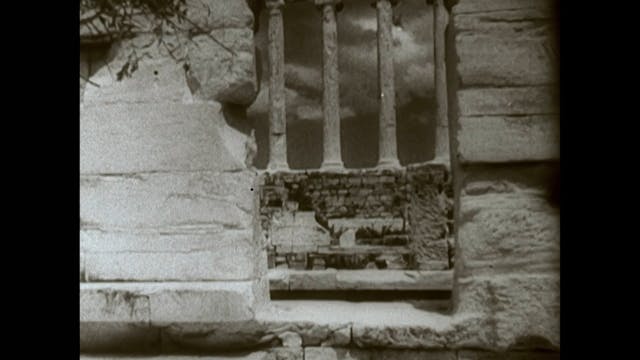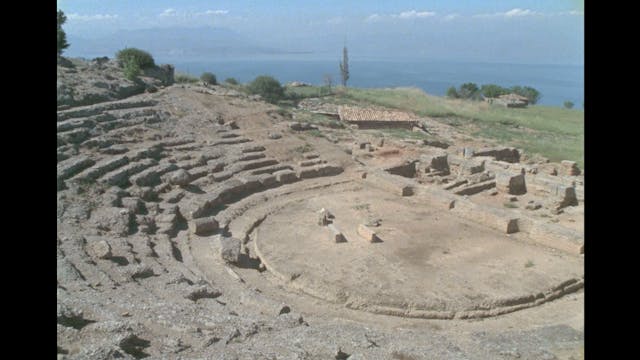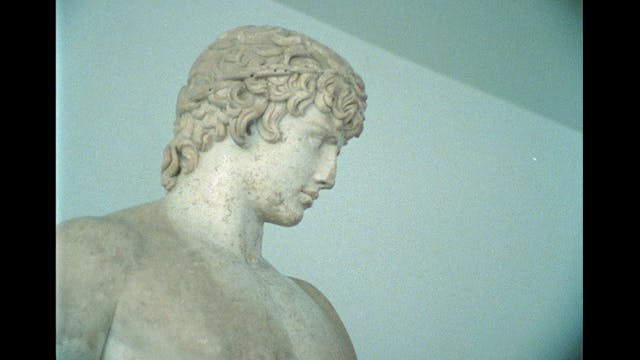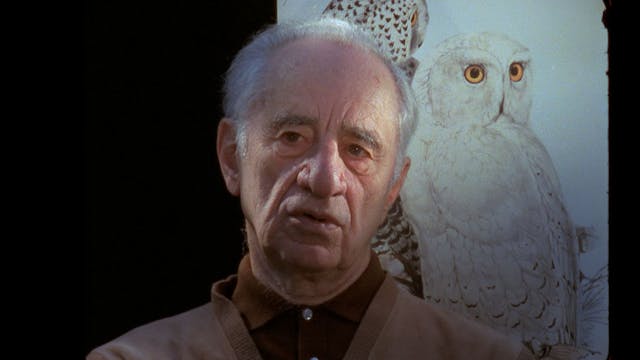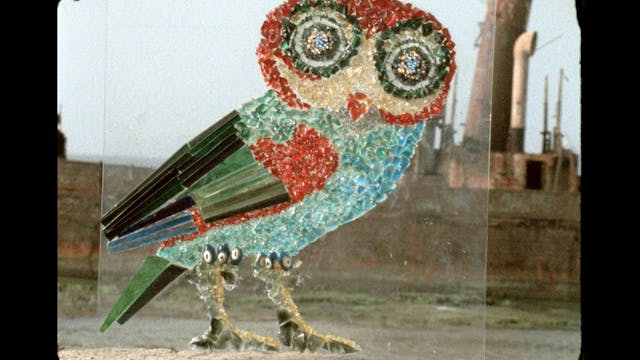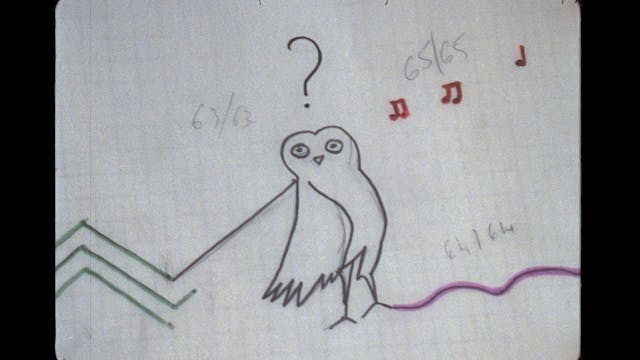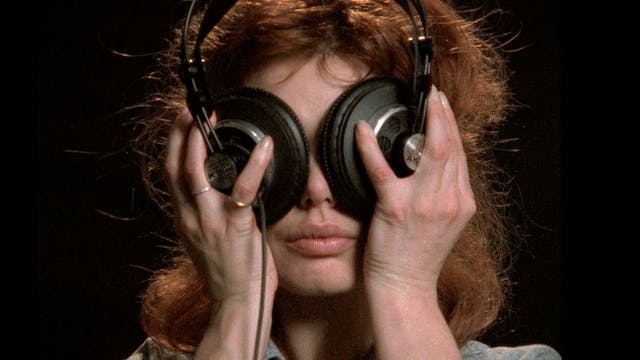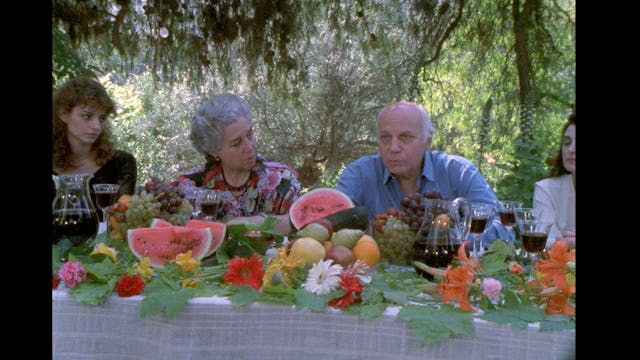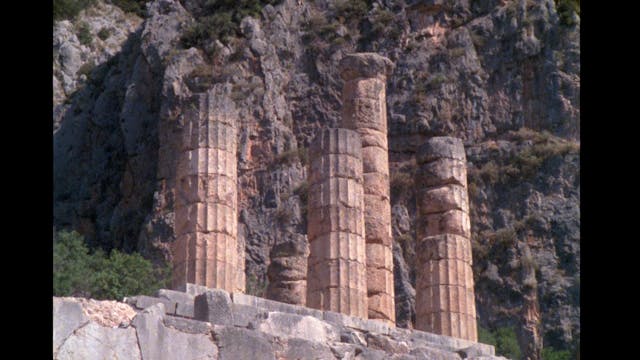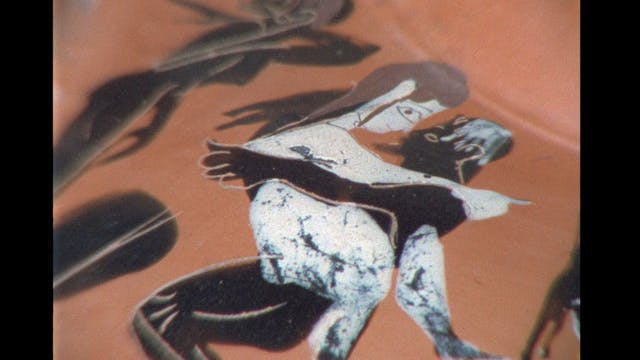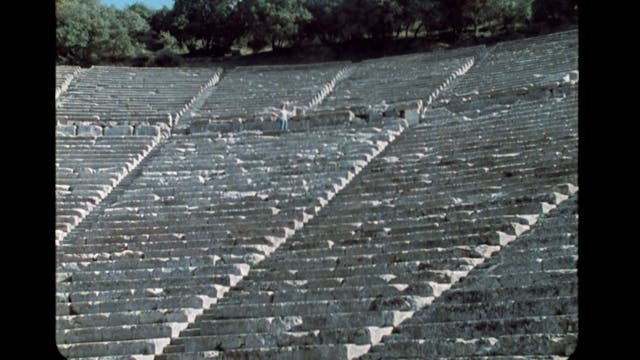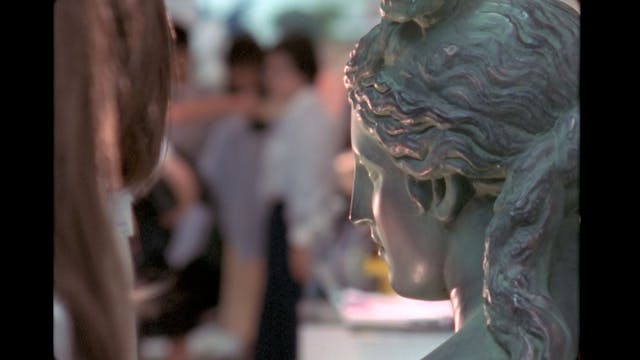The Owl's Legacy (complete series)
Rent the series for $12 or individual episodes for $1.99
Directed by enigmatic and brilliant documentary essayist Chris Marker, THE OWL’S LEGACY is an intellectually agile, engaging, and sometimes biting look at ancient Greece, its influences on Western culture—and how many eras have reinterpreted the Greek legacy to reflect their own needs.
Each of the 13 episodes is centered on a potent Greek word: from “democracy” and “philosophy” to “mythology” and “misogyny”. Marker convenes and films symposia—meals featuring wine and thoughtful conversation—in locales including Paris, Tokyo, Tbilisi, Berkeley and an olive grove on the outskirts of Athens. Footage from these banquets is interspersed with archival materials and interviews (often featuring a stylized or distorted owl image looming in the background). Marker’s diverse group of informants includes composers, politicians, classicists, historians, scientists, writers, filmmakers, and actors. Together their contributions form a compelling (and sometimes contradictory) cultural and historical exploration for each theme.
After screening on European television, THE OWL’S LEGACY was unavailable for decades—the result of objections from funders the Onassis Foundation, who took offense at comments made in the series about modern Greece. Now it has been restored and is finally being released. THE OWL’S LEGACY continues to serve as a powerful reminder of the ongoing impact of ancient Greek culture and the ways in which we continually recast it to suit our beliefs.
-
Episode 1. Symposium—or Accepted Ideas
This episode sets the tone for the rest of the series, introducing the fundamental idea Marker and his participants explore: For centuries, we’ve used Greek civilization as a touchstone, but as John Winkler—classics scholar, queer historian, and one-time monk—says, looking at ancient Greece is li...
-
Episode 2. Olympics—or Imaginary Greece
We begin with the personal. In interviews, classicists Manuela Smith and Oswyn Murray, singer Angélique Ionatos, and filmmaker Theo Angeolopoulos discuss the sometimes unconscious ways ancient Greek thought have permeated their lives and work. (And Ionatos notes that those who fetishize ancient G...
-
Episode 3. Democracy—or the City of Dreams
An in-depth—but not overly dense—exploration of how Athenian democracy worked, and the key ways it differs from modern states using the word. Ancient Greek democracy emphasized the polisnot as a city-state the way we understand it, but as a collection of individuals. Those able to participate (fr...
-
Episode 4. Nostalgia—or the Impossible Return
Nostalgia is there right at the start of the Greek literary tradition. Odysseus, after a decade of fighting the Trojan War, must wander another decade before finally returning home to Ithaca. For millennia to follow, nostalgia—a word drawn from roots meaning “longing for home” and “pain”--continu...
-
Episode 5. Amnesia—or History on the March
Western history is said to begin with the Greeks—more specifically, with Herodotus, credited as the first historian. But the ancient Greek conception of history, based on the idea of self-examination, is very different from current conceptions. History in some ways is the interplay between rememb...
-
Episode 6. Mathematics—or The Empire Counts Back
There is a narrative about ancient Greece and math: That the Greeks invented mathematics as we know it, that men such as Pythagoras and Thales were its fathers, and that concepts including parallel lines and geometric shapes are universal and ahistorical.
After introducing us to this view, Mar...
-
Episode 7. Logomachy—or the Dialect of the Tribe
The word “logos” stands at the start of Greek philosophy. A word that defies simple translation, it lies at the root of terms including logic, dialogue, and dialectic. The Greek word for literature is “logotechnia” -- the technique of logos.
LOGOMACHY explores logos in its many forms, from So...
-
Episode 8. Music—or Inner Space
What defines music? Soldiers marching in tandem create rhythms; Orthodox priests don’t simply speak when performing the liturgy, they chant and sometimes sing; the hammer banging on a board is not that different from the tug of a rope ringing a church bell.
In Greek mythology, Athena (whose sy...
-
Episode 9. Cosmogony—or the Ways of the World
This episode is classic Chris Marker, tying together an abandoned Athenian power plant turned cultural center, ancient Greek statuary, a department store in Japan, young men destroyed by armored warfare during WWI, and a comparison between Plato’s parable of the cave and contemporary cinema.
F...
-
Episode 10. Mythology—or Lies like Truth
A small number of Greek myths—Oedipus, Antigone, the Gorgon who turns people who gaze on her to stone—have fed our understandings of ourselves and each other through literature, religion, philosophy, and psychoanalysis.
In this episode, George Steiner discusses the origins of myth in the psych...
-
Episode 11. Misogyny—or the Snares of Desire
Classicist Giulia Sissa takes center stage in this episode, which explores desire in ancient Greece (primarily Athens), the social status of women, and the erasure of women by classics scholars.
Homosexual and heterosexual relationships co-existed, each within their own spheres. Any notions o...
-
Episode 12. Tragedy—or the Illusion of Death
Greek tragedies were originally like TV shows before the age of streaming. They were performed once, and only once says scholar Oswyn Murray. But despite their transitory nature, they embraced themes that have spoken to humanity for centuries—and across cultures.
This episode looks at the part...
-
Episode 13. Philosophy—or the Triumph of the Owl
After a dozen episodes that begin and end with the image of an owl, PHILOSOPHY begins with the owl and its symbolism, and shows us how many of the participants in the series react to the birds or images of them.
What is philosophy? Does all philosophy draw on the Greeks? And are there any phi...

